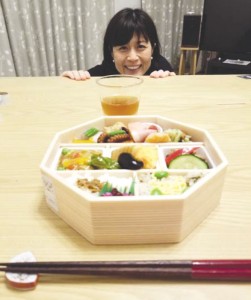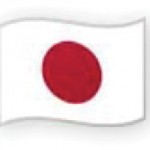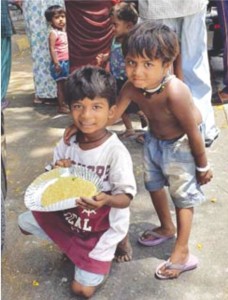Not all Rotary is the same Rotarians worldwide are united under the umbrella of Rotary International. But what is the subtle difference? Rotarians from seven regions of the world talk about what Rotary culture means to them locally.
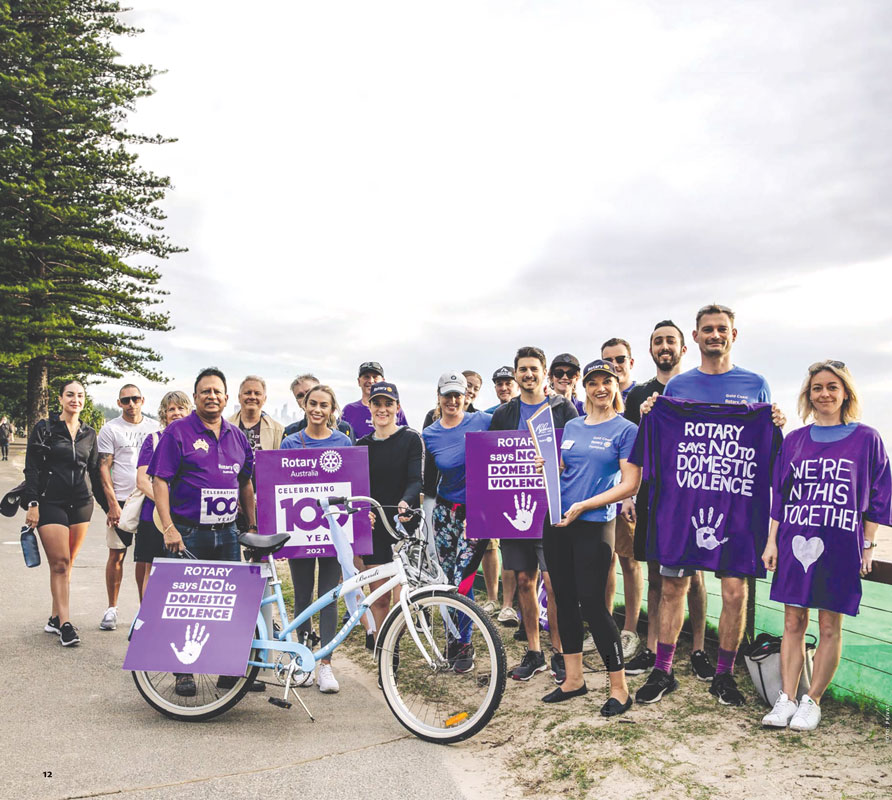
The new face of Rotary ‘Down Under’
Rotary in Australia is like the country itself — big and diverse. Australia is the world’s most successful multicultural society. Nearly half of today’s population was either born overseas or has at least one foreign-born parent. Most Australian Rotary clubs have also enthusiastically adopted RI’s policies on diversity, equality and inclusion, and welcome the many diverse people into their communities.
While Australia’s oldest clubs, celebrating their 100th anniversary this year, might still be considered elitist — affluent and sticking to traditional lunch meetings with a traditional format — clubs from small rural towns to coastal communities gather in a variety of different forms.
In Queensland’s capital, Brisbane, RC Woolloongabba is the first RC in the world to sponsor a Pride club in support of the state’s LGBTIQ community. For several years, the club has supported LGBTIQ organisations such as the Queensland Council for LGBTI Health and Open Doors Youth Service. Last year, the club members formed the first Rotaract Pride Club — a first for RI.
District 9640 is the top performing district in membership growth and retention in Zone 8 and has redefined the boundaries of club development. Then DG Andy Rajapakse and his team chartered five new Rotary clubs, two Rotary satellite clubs, three Rotaract clubs, one Interact club and one Rotex club. “We added a record 383 new members to our 58 Rotary clubs in 365 days,” he said, adding that 63 per cent of them were women and 24 per cent were under 40. “The Gold Coast Passport Rotary Club and the Gold Coast Corporate Rotary Club are among the best innovations in the district.”
Nationally, in celebration of Rotary’s 100th anniversary ‘down under’ (Australia, New Zealand and Southwest Pacific), clubs and districts from across the zone have joined together to support Rotary100downunder, Rotary gives every child a future.
RC Woolloongabba is the first RC in the world to sponsor a Pride club in support of the state’s LGBTIQ community.
The project celebrates 100 years of service and, in partnership with UNICEF, will vaccinate 100,000 children in nine South Pacific Island countries against rotavirus, pneumococcal disease and cervical cancer over three years. Both organisations will work with local governments to develop and implement immunisation programmes that administer the vaccines.
Although there are many centenary projects across the zone this year, Rotary gives every child a future is the project that involves all of Australasia and shows that Rotary remains strong in today’s world.
Meagan Martin (Gold Coast Passport Rotary Club) has been editor of Rotary Down Under since 2019
Service as a way of life
If Rotary’s motto is ‘Unity in Diversity’, what better example could there be than Rotary in a country as diverse as India? In a country with 22 major languages and several thousand dialects, Rotary’s language remains one — that of selfless service.
Rotary Club of Queen’s Necklace is a club in India’s financial capital, Mumbai. Members come from a wide cross-section of professions and businesses. There are a healthy number of women in the 181-member club. And ages range from 40 to 70. Efforts are constantly being made to attract younger members.
Social initiatives and the community form the culture that binds the club. With generous donations from members, the club is able to undertake very large projects. A typical fundraising appeal on Whatsapp collects pledges of $50,000 within a few hours. Last year, during the first wave of the pandemic, the club carried out a project worth almost $2 million to distribute 10 million meals to the hungry and homeless severely affected due to the long lockdown of the country. Half of these funds were donated by members, their families and friends. Members are passionate about helping the local community in the areas of education, the underprivileged, subsidised health facilities for the poor, and improving living conditions for the rural population.
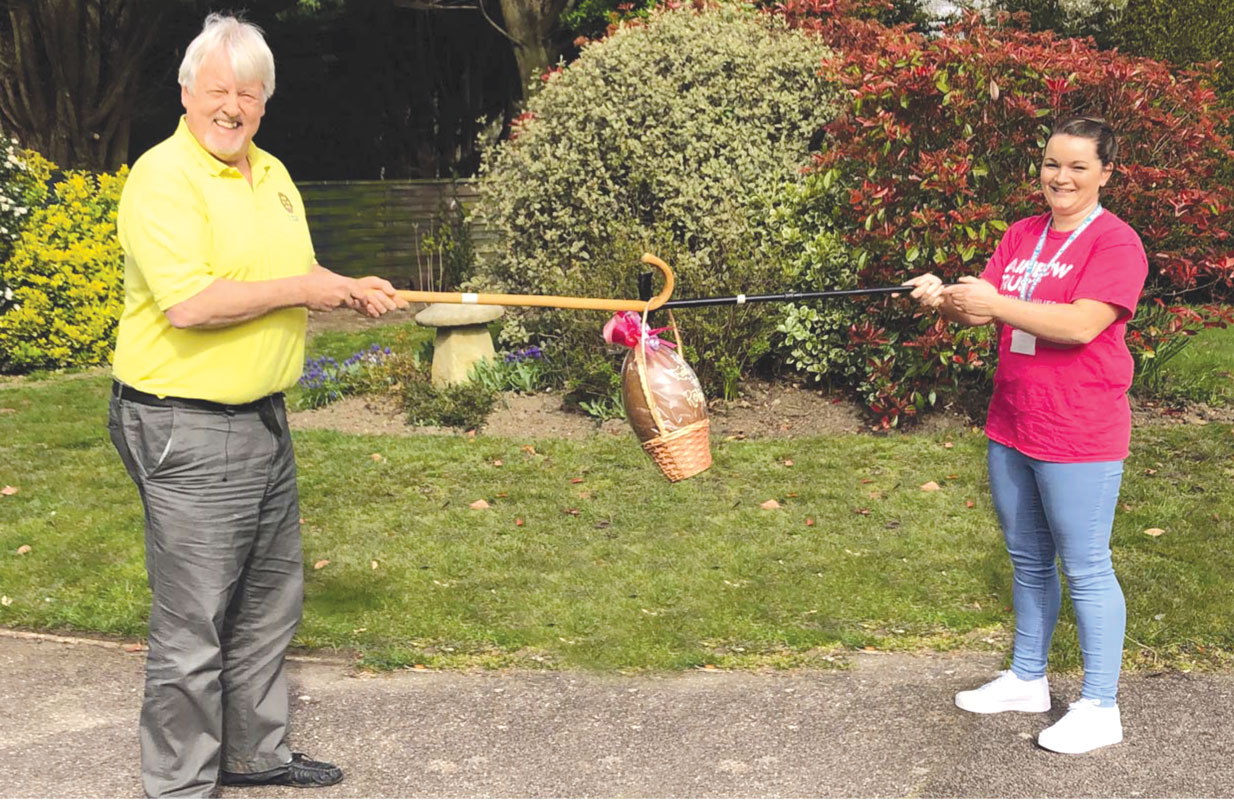
Camaraderie is a very important feature. Members came together every month for two meetings and at least one community event before the pandemic. All Indian festivals, and there are several, are usually celebrated with great joy each year. During Diwali the entire club comes together for a gala night. Due to the ongoing pandemic, no physical meetings are held, but zoom meetings are well-attended to listen to speakers from around the world. Members have also held virtual events, such as an illusion show, a talent show and workshops. Indians are big foodies. So every month, delicious food baskets made their way to the homes of all members.
Sneha Pathak, member of RC Queen’s Necklace, Mumbai
One in 300 Norwegians a Rotarian
Six years before former chancellor and Hapag boss Wilhelm Cuno founded RC Hamburg, the first Rotary club in the German Empire, the first club in Scandinavia had already been founded on October 13, 1921. Olaf M Oleson, a Norwegian-American senator from Idaho and a member of RC Fort Dodge, had attended the RI convention in Edinburgh in June 1921, then visited the country of his birth and told his nephew there about Rotary. Ola Five, a captain in the Royal Guard, gathered eight friends and with them formed RC Kristiania. In 1924, like the city, the club changed its name and has since been called Oslo Rotary Klubb. Honorary members include Crown Prince Haakon Magnus, and his father King Harald V is honorary governor of Norway’s seven Rotary districts. The Oslo Rotary Klubb has not only founded 19 clubs in Norway, it also stood godfather with the København Rotary Klubb at the cradle of the Stockholm Rotary Klubb. Today, Norway is one of the strongholds of Rotary, with 335 clubs and around 14,000 members — one in 300 Norwegians is a Rotarian.
The clubs open their meetings with a ‘gladmelding’, a personal glad tidings. Meanwhile, a member goes from table to table selling raffle tickets; the winner wins a wine, the winning ticket is drawn by the speaker of the day. Proceeds benefit the club’s treasury. A member comments on a current topic in a three-minute talk, before a cold ‘lunsj’ is served at lunch meetings and a warm ‘middag’ in the evening.
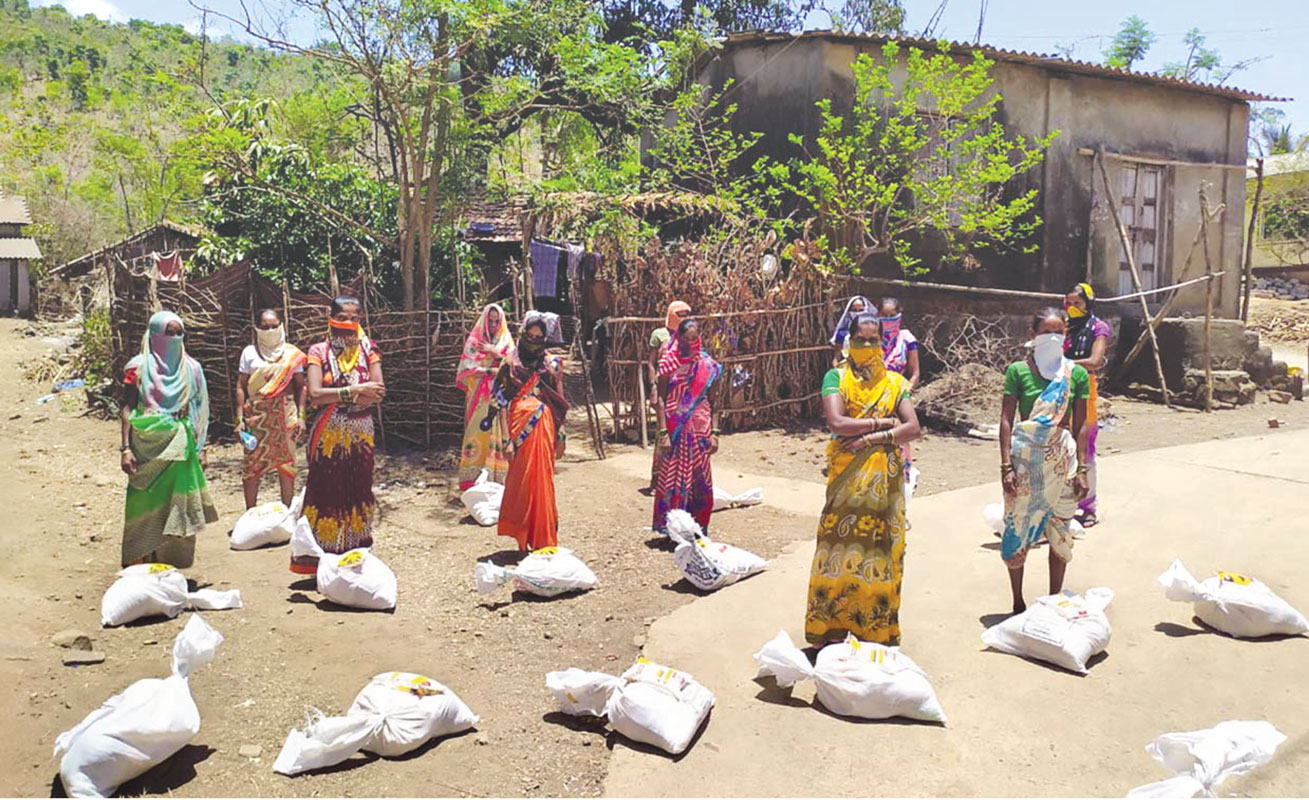
Thanks to the excellent digital infrastructure, the clubs implement a variety of web-based initiatives. One of them is the ‘digital melting pot’; in regular network meetings, the clubs coordinate existing and planned projects with each other on a regional and national level, pooling resources and thus increasing the benefits of Rotarian project work. RC Færder focuses on academic youth: It offers free membership to its returning exchange students. Bjørn Rismyhr (RC Karmøy-Vest) had his Mercedes fitted with the vanity plate ‘Rotary’. “Rotary, is that a dance club?” was one of the questions he heard. “Whatever people ask, it’s a good opportunity to introduce Rotary,” Rismyhr says.
Kai-Axel Aanderud (RC Hamburg- Deichtor) is the son of a Norwegian father and a German mother. He won Uranienborg Rotary Klubb (Oslo) as a partner club of his RC Hamburg-Deichtor
Inequality and many needs
There are three districts (9350, 9370 and 9400) that span South Africa and geographically include six neighbouring countries, Angola, Botswana, the Kingdom of Eswatini, Lesotho, Southern Mozambique and Namibia. Attending a city club can be very different from attending a rural club. Members of city clubs have traditionally been industry executives and more formal. Rural clubs have historically attracted mostly medium and small business members who are very social and less formal. However, both forms of clubs are constantly changing as they strive for diversity and gender equality. Women were not admitted to Rotary until 1991, but now the region boasts of a 32 per cent women-Rotarian membership.
Most clubs in Southern Africa are based on the historic, traditional club model. The concept and flexibility of e-clubs and satellite clubs are slowly gaining traction.
There is so much inequality and poverty, and so the needs are plenty. I can safely say that all seven focus areas are very relevant to Southern Africa. If I were forced to prioritise the needs, I would list the following areas in order of importance: water and sanitation, malnutrition and early childhood development, economic opportunity, peace and conflict prevention. The region is very receptive to inter-country committee agreements. To date, there are good relationships with districts in Germany, Canada, India and the UK. These relationships are established not only for projects but also for friendship exchanges, youth exchanges, cultural exchanges, conferences or webinars.
Grant Daly is past governor of District 9400
Much less traditional than in Germany
In the past, Great Britain has always behaved like an unruly teenager — proud, but stubborn and very independent. After all, we are an island nation, only 20 miles from mainland Europe at its narrowest point. Yet in the context of Rotary in Great Britain and Ireland, the nations of England, Scotland, Wales, Northern Ireland and the Republic of Ireland are five countries and two very different islands in terms of their characteristics and cultures. Yet we are all connected by the common bond of Rotary. There are about 40,000 Rotarians in Great Britain and Ireland, reflecting a steady decline in membership in recent decades. Of those, 22 per cent are women, and the average age is 71. But these are not typical times. Covid-19 has changed the shape and nature of Rotary worldwide. With clubs meeting online, fundraising opportunities are extremely limited.
Some 12.4 million Britons volunteered in their communities during the pandemic, joined by tens of thousands in the Republic of Ireland. The post-pandemic challenge will be to welcome these future Rotarians into our clubs now that they have a taste for volunteering.
Over the past 16 months, Rotary clubs have been working in their communities to help the needy and isolated shop for and pick up medicine. They have supported food banks that exist in unbearable conditions due to rising unemployment. Clubs have worked together in teams to provide personal protective equipment such as gowns and face masks for frontline workers — many of whom are Rotarians themselves.
This desire to volunteer and get involved in the community was evident last May when Rotary was at the forefront of the UK Volunteer Expo, a two-day digital showcase of achievement. More than 5,500 people registered for the Expo — 40 percent of them Rotarians — and learned how the whole nature and shape of volunteering is changing. The message of the Volunteer Expo was that we need to make volunteering more relevant to the next generation by providing opportunities that are compatible for younger people with their busy work lives. We need to be more flexible, and that includes the way we do Rotary.
Rotary in these islands is much less traditional than in Germany. This flexibility has led to the development of satellite clubs, passport clubs, and clubs that no longer meet formally for dinner, but perhaps at a café on Sunday morning with children in tow.
Dave King (RC of Gosport in Hampshire, England) has been editor of the Rotary magazine for Great Britain and Ireland for four years. He has been a Rotarian since 2010 and has been a member of several clubs
Tradition-conscious and always on time
Rotary Japan has 88,310 members in 2,237 clubs in 34 districts (April 2021). Of these, 6,265 members are women, about seven per cent. The reason for the low number may be that there are few woman leaders in Japan. Japanese Rotarians tend to be executives or managers. The average age is 60. And once they join Rotary, few leave. Many have a long
Rotary history.
Many clubs hold a regular one-hour meeting where they have lunch and listen to a table talk. And typically Japanese, members are always very punctual! They consider fellowship important, so they sometimes hold evening meetings where they have more time.
In general, Japanese members are good at keeping traditions, but they are not good at changing or they are satisfied with the current situation. They understand the need to increase membership, but it is more important for them to include someone who understands the philosophy and fellowship of Rotary than to just increase membership.
RC Yokohama (about 200 members) holds regular meetings at a prestigious hotel. Before Covid-19, members met at the round table and enjoyed a meal at the hotel. Now they hold their meetings school style to avoid infection and without a meal. Box lunches are distributed after the regular meeting.
One of the projects we are doing in Japan is the Yoneyama Memorial Scholarship. Yoneyama is the name of the person who introduced Rotary to Japan. This project is funded by all Japanese Rotarians and awards scholarships to 900 foreign students studying in Japan each year. The goal is to develop excellent international students who will play an active role in the international community in the future and form a bridge between their home countries and Japan. To date, we have supported approximately 22,000 students from 129 countries and territories around the world. For regional reasons, most of them are Asian students, but 44 German students have also been supported so far.
Kyoko Nozaki has been editor of the Japanese Rotary magazine Rotary no Tomo since 2016
Lone leader in polio initiatives
The history of Rotary in Brazil began in 1923 with the founding of RC Rio de Janeiro. Today, there are 2,426 Rotary clubs and 51,945 Rotarians in the country of 31 Rotary districts. Since then, Brazil has hosted three RI conventions: in Rio de Janeiro (1948) and São Paulo (1981 and 2015). RI has had three Brazilian presidents: Armando de Arruda Pereira (1940/41), Ernesto Imbassahy de Mello (1975/76), and Paulo Viriato Corrêa da Costa (1990/91), whose Preserve Planet Earth programme inspired the creation of the new Foundation focus on the environment.
Reflecting Brazil’s territorial expanse and diverse economic, social and cultural characteristics, the country’s clubs have a wide variety of profiles: business people, freelancers, teachers and retirees.
Membership is increasingly growing with the number of women, who now make up about 30 per cent of Brazilian Rotarians. One of the hallmarks of Rotary in Brazil is its youth clubs, with 754 Rotaract clubs and 649 Interact clubs, which have 9,029 and 16,120 members, respectively.
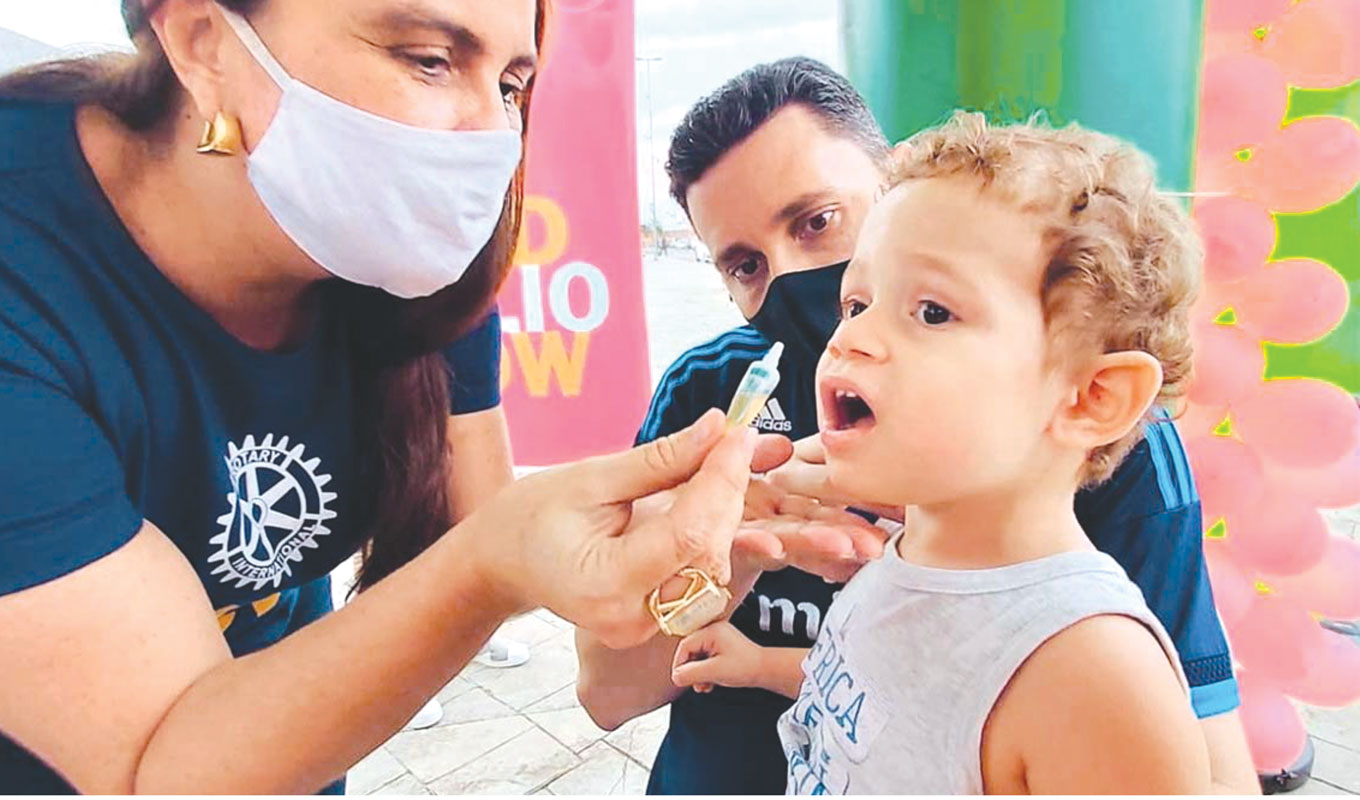
The Rotary family in Brazil is developing important initiatives that help Brazilian communities overcome the stark social inequalities that still characterise the country. Many of these projects, including those funded through global grants, focus on disease prevention and treatment.
The fight against polio is a special chapter in this story. Since the 1980s, Rotary has been a partner with the Brazilian Ministry of Health in the fight against polio. Past donations have included funds to purchase vaccines. The last polio case in Brazil occurred in 1989, but Rotarians continue to volunteer at the annual National Immunisation Days. This commitment is reflected in World Polio Days (WPD), hosted by RI. Since 2016, Brazil has led the global ranking of WPD initiatives.
Nuno Virgílio Neto (honorary member, RC Rio de Janeiro) is a journalist and editor of Rotary Brasil magazine since 2016
(Reproduced from Rotary Magazin, Germany)





